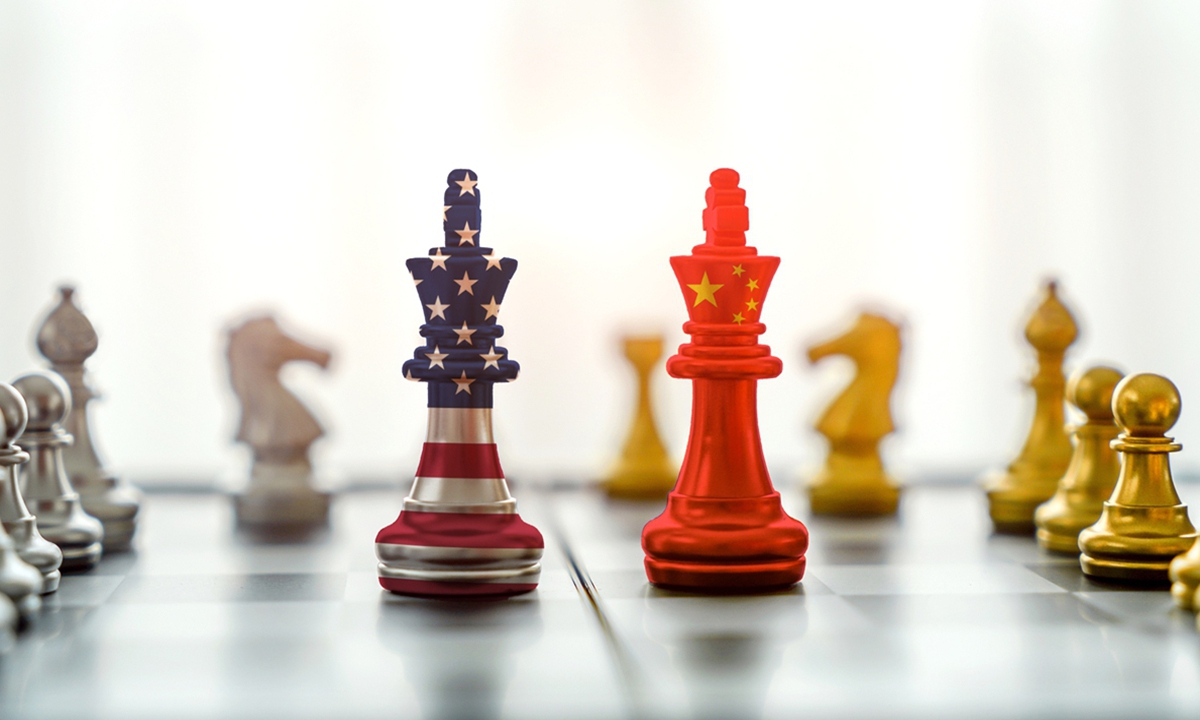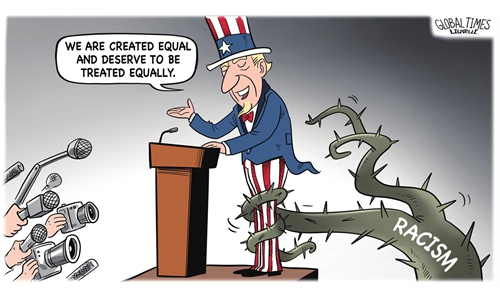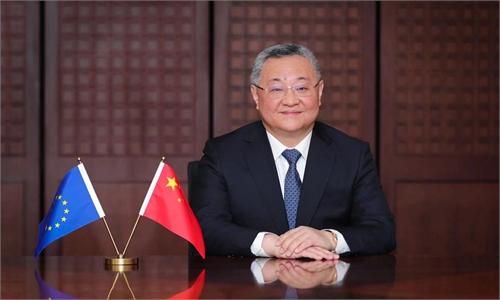US urged to take action for win-win cooperation as Washington adds 13 Chinese firms to Unverified List
Washington urged to take concrete action to boost mutually beneficial cooperation

China US
The US on Tuesday put another 13 companies in China on its Unverified List, in the latest move to deliberately create obstacles to China-US economic and trade cooperation. Chinese analysts said the groundless and unilateral US restrictions on Chinese tech firms harm the legitimate rights and interests of those companies as well as the interests and reputation of the US itself.
They called for the US to meet China halfway and take concrete actions to implement the common understandings reached by the leaders of the two countries in San Francisco and jointly advance mutually beneficial cooperation for the well-being of both peoples and the world as a whole.
The US Commerce Department's Bureau of Industry and Security on Tuesday added 13 companies in China to its Unverified List, saying that it was unable to complete on-site visits to verify "the legitimacy and reliability relating to the end-use and end user of the items," according to a notice on the US government agency's website.
Chinese companies added to the list include Fulian Precision Electronics (Tianjin) Co, Guangzhou Xinyun Intelligent Technology Co, Shenzhen Bozhitongda Technologic Co and Shenzhen Jia Li Chuang Tech Development Co, among others.
The US government has used the Unverified List as a kind of sanction on Chinese companies, as US companies are required to conduct more due diligence before exporting to enterprises on the list and may even have to apply for additional licenses, analysts said.
In February 2022, the US Commerce Department added 33 entities in China to the list, although it unexpectedly lifted 27 Chinese entities from the list ahead of US Commerce Secretary Gina Raimondo's visit to China in August 2023.
"This is typical long-arm jurisdiction, as the US government agency conducts inspections of Chinese companies so as to decide whether they will be placed on the list or be removed from the list. In the process, the US side may infringe Chinese companies' commercial secrets," said Zhou Mi, a senior research fellow with the Chinese Academy of International Trade and Economic Cooperation.
More importantly, the US' unilateral and protectionist move negatively affects Chinese companies' normal operations, seriously disrupts global industry and supply chains, damages fair and free competition principles and harms the global economic recovery, Zhou told the Global Times on Wednesday.
The latest US move is in stark contrast to its statements that it is ready to keep growing economic and trade relations with China and does not seek to contain or suppress China's development, and runs counter to the common understandings reached between the leaders of the two countries in San Francisco, analysts said.
Chinese and US leaders held a significant summit in November, setting the direction for the healthy, stable and sustainable development of bilateral relations. It is hoped that the US side can match its words with deeds, stop bullying Chinese enterprises and strengthen cooperation with China in order to jointly deal with global challenges, Zhou said.
Showcasing China's sincerity in stabilizing bilateral ties, the Chinese side has recently taken various practical measures, including authorizing Mastercard's Chinese joint venture to conduct bank card clearing business in China, and approving Broadcom's acquisition of VMware.
"The Biden administration's strategy of cracking down on and 'decoupling' from China will not change. But building a 'small yard, high fence' will backfire on the ability of the US to achieve its goals in next-generation technologies," Zhou said.
"Although the US will not end its crackdown on China's high-tech sector, we are confident that the US sanctions and containment will have no fundamental effect on China's sci-tech development," Xiang Ligang, director-general of the Beijing-based Information Consumption Alliance, told the Global Times on Wednesday.
Even amid the severest US containment over the past several years, Chinese tech giant Huawei has made important breakthroughs with the release of its high-end Mate 60 smartphones.
"In terms of chip manufacturing, we have leading manufacturers such as Semiconductor Manufacturing International Corp and Hua Hong Semiconductor," Xiang said.
To accelerate tech innovation, the US must take an open attitude for fair competition with China, Xiang said, noting that China is a valuable market that US companies cannot afford to lose.
In a sign of the US failure in "decoupling" from China, Raimondo said in an interview with Reuters on December 11 that Nvidia "can, will and should sell AI chips to China because most AI chips will be for commercial applications."



